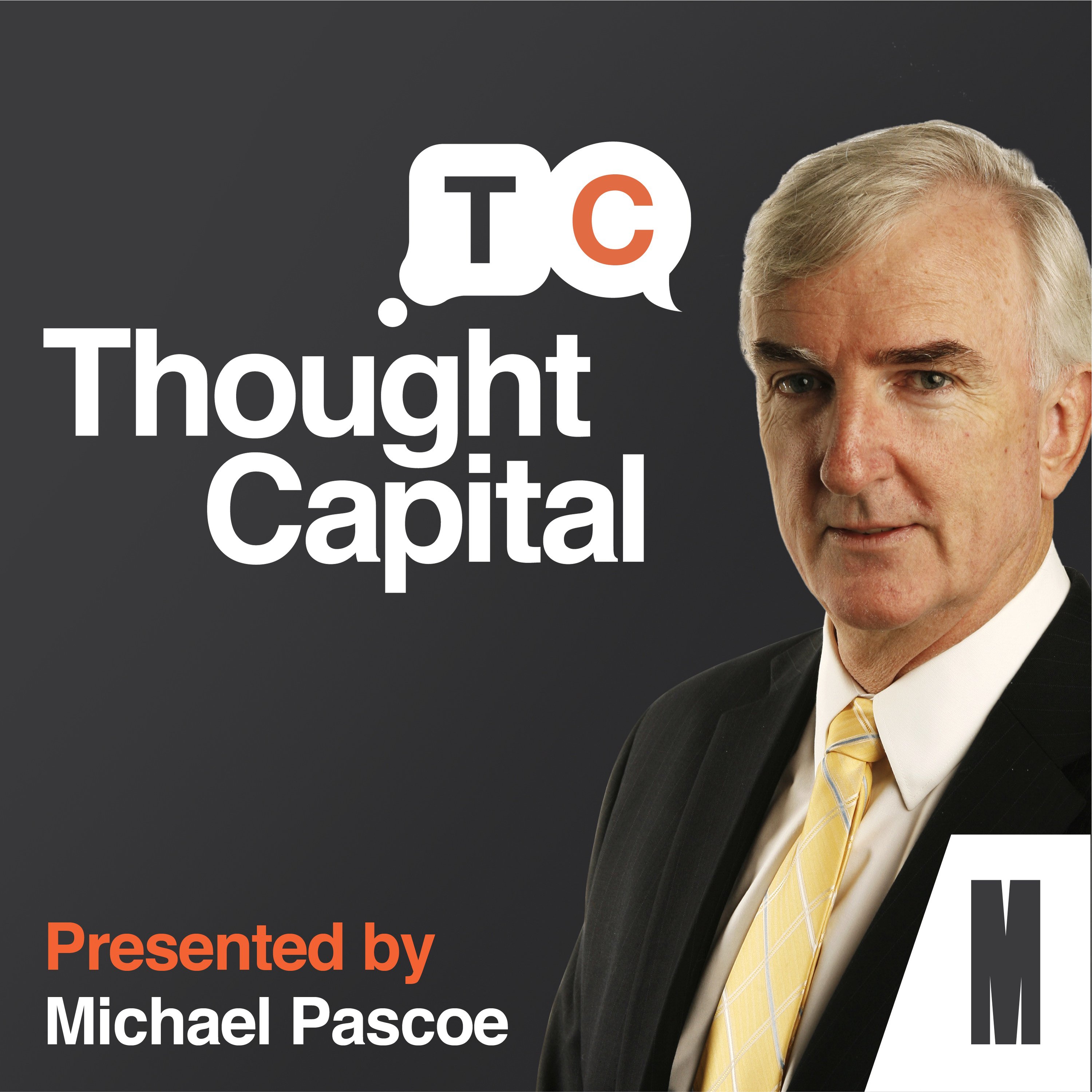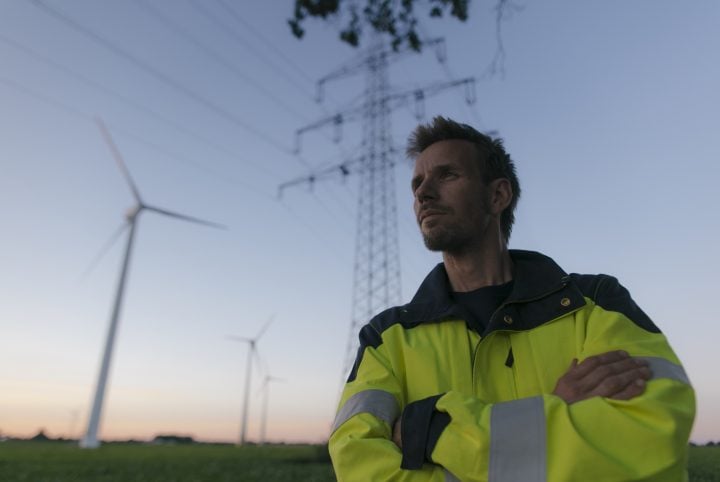Michael Pascoe: Welcome to Thought Capital, the podcast that delves into the wealth of ideas created by the experts at Monash Business School in Melbourne, Australia.
Michael Pascoe: Digital disruption, the fourth industrial revolution, it’s here and changing how we work and live. How has the new technology of artificial intelligence, robotics, and the Internet of things different from anything we’ve experienced before, and how will it impact our lives?
Simon Wilkie: What we’re seeing now is that job loss isn’t just people losing their job, they’re losing their future. And I think that’s what’s leading to despair, is the fact that you’re not just losing your job temporarily during the downturn, it’s gone forever, and people are recognising that it’s gone forever.
Michael Pascoe: Simon Wilkie is a professor of economics and the newly appointed Dean of Monash Business School. He spent 35 years doing research in the US among his topics of focus on the economics of the communication industries. He has served as Chief Economist for the US Federal Communications Commission and as Microsoft’s Chief Economic Policy Strategist for four years, so who better to talk about artificial intelligence, big data and the future of work. Welcome to Thought Capital, Professor, the fourth industrial revolution. How do you define that?
Simon Wilkie: The fourth industrial revolution is really about the transformation in the way that businesses, governments, and enterprises operate due to a confluence of various technologies coming together. In particular, the mass adoption of sensors is generating vast amounts of data that (was) not available before. Cloud computing means that now that data can be stored and analysed. Thirdly, the advances in artificial intelligence, in the last few years have been quite dramatic. And finally the large part of it is the communications revolution, so everybody can carry a smartphone, the cost of connectivity in terms of data have plummeted, so we can now have the Internet of Things. Together this amounts to a revolution that I like to call Universal Ambient Intelligence. That is, if you think about the third industrial revolution the rise of computers and IT, that was really about democratising the access to computing power or information, but it wasn’t about democratising intelligence.
Michael Pascoe: In terms of the outcome though. How is the fourth different from the third?
Simon Wilkie: We didn’t really see that much radical transformation in the economy through the third, right? We saw some tasks being automated, some tasks going away, but we didn’t see massive structural changes in the economy. We didn’t really see massive dislocation. Now that’s what we’re seeing. We’re starting to see transformation in the way businesses operate, transformation in the nature of organisations, transformation in the nature of work. The canonical example would be something like, Airbnb disrupting the hotel industry, or Uber changing the way that people view transportation. We’re seeing transportation now viewed very much as a service rather than buying an asset like a car.
Michael Pascoe: Is there a payoff, though, in productivity? There’s still, whether it’s a taxi driver, an Uber driver, it’s the same job. Are we getting a pay off for these revolutions?
Simon Wilkie: That’s a great question. The economist, Robert Solow used to joke, you can see the benefit of computers everywhere except in the productivity statistics. The same thing happened with the first industrial revolution. When we developed the steam engine, we actually didn’t see any pickup in productivity. The great increases in GDP, and productivity, and really the quality of life, happened in the second industrial revolution, when we got the automobile, we got the telephone, we got radio, we got electricity to houses. That’s when life really changed. In that 20, 30, year period, the world changed dramatically. I think what we’re seeing now is the transformation such that the quality of life and what people do will be dramatically different.
Michael Pascoe: Is it still 20 years away though or closer?
Simon Wilkie: It’s going on now, quite rapidly, so 20 years from now we’ll look back and be amazed at what happened through this period.
Michael Pascoe: Where will we be in 20 years, if you’re game to forecast that far out?
Simon Wilkie: Much of what’s considered work now will not be done by humans. What we’re seeing now is the dislocation with other types of jobs now that are going to be replaced with algorithmic thinking, with data mining, and in particular we’re going to see humans have the time to specialise more heavily in what makes us human, I think. Everybody’s focusing on the dislocation caused by this industrial revolution, around the rise of artificial intelligence, but we’re not actually focusing on what it gives us. What it gives us the ability to focus on what we do better than manual calculation, or repetitive tasks. So I think you’re going to see humans concentrating more on the tasks that make us human, and being engaged in more personally rewarding activities.
Michael Pascoe: There has been some kickback, over the robots are coming to take all the jobs hasn’t there … Paul Krugman, for example, machinery’s been taking out the jobs for the centuries, sometimes on big scale.
Simon Wilkie: Correct.
Michael Pascoe: What impact does it have on business?
Simon Wilkie: The impact on business is profound, in particular, it’s changing the way that businesses operate and do business. It’s also raising profound questions about the nature of the firm. I think one thing you’re going to see is, if you will, the rise of the pop-up firm. A problem arise that needs to be solved, a bunch of people will get together with a bunch of skills and running a business on the cloud, solve the problem and then poof, it’s dissolved. The problem solved we divide the rents between us and we go away. Business will move to being much more flexible and much more ephemeral. In that sense Airbnb and Uber are indication of what’s going to happen. It’s not just the gig economy, it’s going to be the gig corporation.
Michael Pascoe: There’s not something in the nature of any organism to want to self perpetuate itself? To reproduce, to move into another area?
Simon Wilkie: So there is, and I think what you’re seeing there is the ones that will self perpetuate are what we now call platforms, right? The thing that is going to be long living is the platform. So you will have platforms and then you will have services operating on platforms. That’s the big structural change that we’re going to see.
Michael Pascoe: The promise or threat is that every section of society is changing or about to change with new technology, with automation, robotics, artificial intelligence, the share economy, many jobs changing, disappearing. Do we need a greater political will to control the concentration of power that becomes possible? Capital gaining a greater control of the economy?
Simon Wilkie: We are seeing tremendous amounts of dislocation. We need to have honest discussions as a society about the nature of that dislocation and also about the changing roles, corporations will have, that educational institutions will have. We need to think more seriously about digital inclusion, more seriously about life long education, retraining, fundamental philosophical issues, purpose and self-worth. “What does that mean?” And we also need to recognises that in a world with platforms, platforms tend to tip so that you get, for example, Facebook, very high degrees of concentration naturally occurring in platform industries, and therefore higher degrees of power. Both in terms of the market and in terms of political power. So we need to have an honest discussion about all of this.
Michael Pascoe: Is Big Tech already too big? The FANG companies too rich, too powerful?
Simon Wilkie: They are enormously rich.
Michael Pascoe: And with that comes political power?
Simon Wilkie: With that comes political power, though, I think the backlash against that, at one level, is the rise in populism. I think the two are probably somewhat linked, so it’s not clear in terms of the political economy. I think Facebook or Google have entirely got their way, in either the United States or in particular in Europe where Google has run into antitrust issues and Facebook is being investigated, but that’s not as suggested. They don’t have tremendous amounts of power. I think there are profound questions that need to be addressed in public policy terms about privacy, and data use, and data concentration.
Michael Pascoe: You’ve worked at a very high level for Big Tech, for Microsoft. Can we trust Big Tech?
Simon Wilkie: We shouldn’t put ourselves in the position of having to trust Big Tech, I think even Big Tech would agree with that.
Michael Pascoe: As with any phase, or change, that comes with a lot of worry. The risk of losing your job, your skills not being sought anymore, being put out of business, it’s very disturbing to think about on a broad scale, what … Do you think we should be worried, and how worried are you?
Simon Wilkie: I’m very worried that this is a tough time, it’s going to be a tough time for a lot of people. The promise is not going to be recognised until we’re further down the journey. So the rise of populism, that’s global, that’s very troubling and very scary. If you think of the last time that we saw this, in the 1930s again after the second industrial revolution, that’s why I think society needs to have an honest dialogue and we need to have a plan about what to do. The concept of having people feel included in society and the real society, not the digital society, is something that needs to be profoundly addressed.
Michael Pascoe: Whereas the trend is to disenfranchise.
Simon Wilkie: The trend has been to disenfranchise. I’ve been in the US for a long time and so I’m more familiar with the situation there, than I am in Australia, only having been back here for a little while. But there we’re seeing very troubling trends. In particular, you might have heard that for the first time since the first industrial revolution, life expectancy is falling. It’s being driven entirely by one segment of society, the lower educated whites, the root cause being isolation and despair. So increases in suicides, increases in alcoholism, increases in drug deaths through the opioid problem. So what we’re seeing now isn’t just people losing their job, they’re losing their future. And I think that’s what’s leading to despair, is the fact that you’re not just losing your job temporarily during the downturn, it’s gone forever. And typically the option is to move into a lower paying service job. And what we’re seeing is increase in employment in lower paying, less satisfying service jobs. So we need to recognise that that’s going on, we need to have a plan to transition to more satisfying jobs.
Michael Pascoe: As the data is exploited, those who own the data become more powerful. The people at the bottom of the chain, less so, do we have to look at something like a universal basic income? Do we need that sort of fundamental change to avoid the further rise of populism?
Simon Wilkie: That is currently Silicon Valley’s preferred solutions, right? There are many people there who think, “Oh, as we displace people, tax us a bit and then put the money into a fund and have universal basic income.” That’s an interesting idea, I don’t think it’s a panacea. I actually think the issues around self-worth, and value, and seeing a future for yourself, and contributing to society in a way that generates self-esteem is not solved by universal basic income. So I think it’s part of the solution, but we need to have a more profound social network than just the monetary security blanket. I think we need a real, more profound social interaction.
Michael Pascoe: We’ve been looking at the downside mainly now. What’s the upside? What excites you about this revolution?
Simon Wilkie: Tremendous opportunities for increases in human health, let me give you an example. There’s an app you can put on your smart phone, you can take a snap of a spot on your skin, it takes that image back to the cloud and analyses it and can tell you with 97% accuracy whether it’s a melanoma. The best skin surgeon in the world is about 95% accurate, your average GP’s about 70% accurate. So what we’ve done is democratise what was previously very expensive intelligence, very expensive analytics that were available only to wealthy people in Beverly Hills and we’ve made it available in the Bush in Africa, right? So health diagnostics is going to improve. We’re going to see more competition in areas like insurance and financial products are going to be revolutionised. All of these things are going to increase human welfare and increase health and longevity.
Simon Wilkie: The other area that’s showing tremendous promise is agriculture, with IoT, just much more efficient use of pesticides and fertilisers really dramatically reducing the harm done there. And also dramatically increasing yields that the numbers on that looks spectacular. We’re also going to see, in the long run, I think an improvement in happiness as people do move into more rewarding fields of endeavour or away from routine, less routine work. Yeah.
Michael Pascoe: Which companies impress you now?
Simon Wilkie: Obviously, I think Microsoft has done incredibly well. Amazon is just unbelievably data driven, they’re hiring an army of PhDs each year. Jeff Bezos is pretty adamant that he wants people who do data analytics to replace experts and managers as soon as possible. But beyond that, I think the automobile industry is obviously an industry that’s being disrupted, as people move away from owning an automobile to just part of the transportation service package. I think Daimler is really ahead of the curve, I’m impressed with the way Daimler approaches some of these issues. To give you a non-corporate example, the city of Chicago is really data driven. They have a Chief Data Officer, they have a Chief Economist, they have a group analysing the data, even optimising where they send the rat catcher. There are certain institutions that are leading the way.
Michael Pascoe: Whether we like it or not, whether we’re afraid of being left behind or not, we have to move forward and adapt. What skills will be important? What jobs will be around the next generations?
Simon Wilkie: It’s not so much skills as the mindset, right? I think you need the ability to be flexible and agile. The skills that are around design, the skills that are around empathy, connecting with other people, the fundamental things that make us human are the things that are going to be more valuable. And so ironically what I’m saying is technology is making the soft skills more valuable.
Michael Pascoe: So we might replace the Doctor with an app on your smartphone but we’ll keep the empathetic nurse.
Simon Wilkie: That’s correct. The nurse will be more valuable and even .. or the yoga instructor will be more valuable.
Michael Pascoe: If machines are getting so much smarter, the push now to learn to code won’t AI do that for us, if it’s any good?
Simon Wilkie: Well that’s the dirty little secret, as we’ve already got software writing software. Having everybody learn how to write code is not a panacea. Having everybody understand what code is, and not be afraid of it, is really where society wants to be. I think we all want to be cognisant and understand the benefits and the limitations that this is still just a tool.
Michael Pascoe: Professor Simon Wilkie, it’s been great talking to you. Thank you.
Michael Pascoe: You’ve been listening to Thought Capital from Monash business school. You can find more episodes on iTunes, Spotify, and Stitcher or wherever you listen to podcasts. This episode was produced by Tina Zenou, editor is Nadia Hume, sound production by Gareth Popplestone, executive producer is Helen Westerman. Thought Capital is recorded at Monash School of Media, Film and Journalism.




